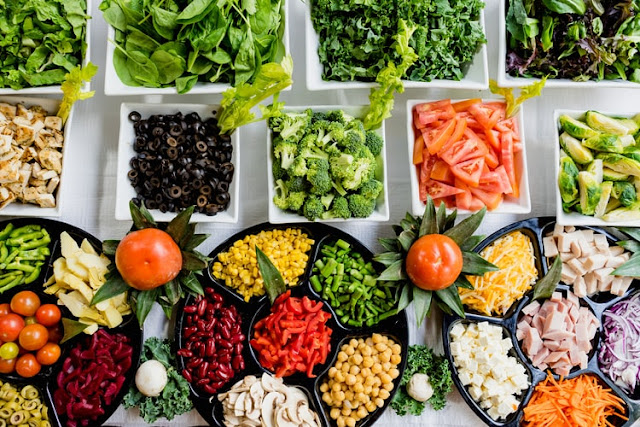2 Minute Read: "There Is Nothing Micro About Eat!"
Food has some essential constituents such as Vitamins and Minerals. These nutrients are called 'micronutrients'. The word 'micro' indicates that they are required in small amounts. Our body cannot synthesize them on its own; therefore they must be provided by food.
Vitamins are protective foods as they build up our body's resistance to diseases. Minerals are important for the growth and development of various regulatory functions of the body.
Food sources of Fat Soluble Vitamins:
Yellow, red fruits and vegetables like carrots, pumpkins, papayas, mangoes, etc. Milk, ghee, and fish liver oils are rich sources of "Vitamin A".
We have to mainly depend on the action of sunlight on the precursor molecule (7-dehydrocholesterol) present in our skin to meet our needs for Vitamin D. Food items such egg yolk, milk, butter, ghee, fish liver oils are good sources of the "Vitamin D".
Whole grain cereals, soya beans, peanuts, and coconut are sources of "Vitamin E".
Green leafy vegetables such as spinach, fenugreek leaves (methi), and radish leaves are good sources of "Vitamin K".
Food sources of Water Soluble Vitamins:
There are a number of vitamins in the "B-complex" group. Animal foods including eggs are rich sources of this group.
Whole cereals, pulses, and nuts are good sources of "thiamine" and "niacin". Milk and its products are rich in "riboflavin".
"Vitamin C" is another water-soluble vitamin. Fruits like oranges, grapes, strawberries, pineapple, sweet lime, Indian gooseberry (Amla), Sprouted grams, tomatoes, and green leafy vegetables like spinach, and fenugreek leaves (methi) are its good sources.
Minerals:
Seafood and iodized salt are sources of "iodine". The deficiency of iodine leads to a condition called Goitre.
"Calcium" can be obtained in our diet from milk, and animal foods like meat, fish, eggs, ragi, and sesame seeds.
Whole grain cereals are "iron" rich foods, other sources of iron are green leafy vegetables, egg yolk, meat, and jaggery.
Spinach, avocado, kidney beans (rajma), soy milk, peanuts, and almonds are "magnesium" rich foods.











